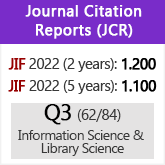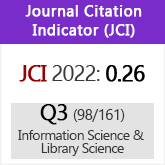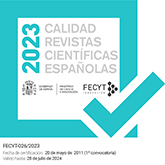New cataloguing: objectives, principles, characteristics and authority control
DOI:
https://doi.org/10.3989/redc.2004.v27.i2.151Keywords:
cataloguing’s principles, computerized cataloguing, electronic media’s cataloguing, future of cataloguing, international standards, metadataAbstract
Once verified the increment of the publications about cataloguing at international level, a general bibliographical revision has been undertaken to offer a panoramic about the characterization of cataloguing in our days, derived from some of the topics of the bibliographical references analyzed.
Searches in the main catalogues and networks of Spanish libraries (BN, REBIUN, CSIC,…) and in the LISA database have provided references of monographs and articles of professional journals. Other resources came from Internet. In total 492 references were obtained and finally around 100 were analyzed to prepare this simple and qualitative work, with the objectives, principles and characteristic features of this discipline.
Main results: to synthesize the theoretical characterization and practice of cataloguing, to enumerate the points of tension and to point out their future projection providing of a logical structure the new catalographic codes that, necessarily, will be more concise and pragmatic; and based on the developments achieved in the authority control.
The conclusions would be: experts of different countries revise the theoretical and practical bases of cataloguing, which is renewed with the new resources and technological possibilities and due to the effect of the two previous facts, is a means of management and organization of the knowledge that today is presented in Internet.
Downloads
Download data is not yet available.
Downloads
Published
2004-06-30
How to Cite
López Guillamón, I. (2004). New cataloguing: objectives, principles, characteristics and authority control. Revista Española De Documentación Científica, 27(2), 192–211. https://doi.org/10.3989/redc.2004.v27.i2.151
Issue
Section
Studies
License
Copyright (c) 2004 Consejo Superior de Investigaciones Científicas (CSIC)

This work is licensed under a Creative Commons Attribution 4.0 International License.
© CSIC. Manuscripts published in both the printed and online versions of this Journal are the property of Consejo Superior de Investigaciones Científicas, and quoting this source is a requirement for any partial or full reproduction.All contents of this electronic edition, except where otherwise noted, are distributed under a “Creative Commons Attribution 4.0 International” (CC BY 4.0) License. You may read here the basic information and the legal text of the license. The indication of the CC BY 4.0 License must be expressly stated in this way when necessary.
Self-archiving in repositories, personal webpages or similar, of any version other than the published by the Editor, is not allowed.

















